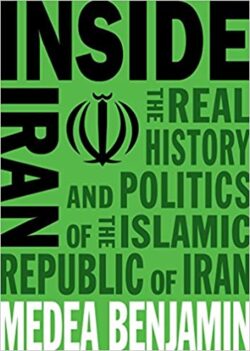We are the United States of Amnesia, we learn nothing because we remember nothing.
— Gore Vidal, Imperial America: Reflections on the United States of Amnesia, 2004
As Americans drown in debt and atomization, the liberal class applauds the arrival of a post-nation-state neo-feudal order which is devoid of checks and balances, integration, national cohesion, or collective memory, rendering any working class resistance to fascism a Herculean task. This has been made possible because of the demise of traditional American liberalism, rooted in the values of the civil rights movement and the New Deal, and its usurpation by the cult of neoliberalism which is anchored in unrestricted immigration, multiculturalism, identity politics, and the nakedly imperialistic policies embraced by the Democratic Party since Bill Clinton. This growing collaboration between neoliberals and the oligarchy has fomented an unprecedented degree of both tribalism and unfettered capitalism, and placed us on a runaway train racing to authoritarianism.
Identity politics, supported by a cornucopia of faux-left elements since the ‘90s with a cult-like zealotry, has unleashed an apocalyptic counter-revolution that is disintegrating our national identity. The anti-working class has been created to facilitate this dissolution. Children are being indoctrinated in the multicultural curriculum, which is predicated on the idea that white people are the oppressor and people of color are the oppressed. This has made both class consciousness and any understanding of history impossible, while depriving Americans of color and immigrant youth with a proper grounding in American letters and classics of Western Civilization. Such a curriculum constitutes the quintessence of racism, yet has been sold to the masses as “fighting racism.”
The multicultural society, essentially a Tower of Babel, has transformed the US into a hellscape of ghettoized enclaves which break down along lines of ethnicity, religion, and language. It has also facilitated the rise of the vocational community and the phenomenon of hyper-careerism. This, in turn, poses yet another threat to civil society, as fanatical careerists are generally indifferent to everything outside of their field.
Indeed, it has become commonplace for Americans who are ensconced in excellent jobs to be so indifferent to life outside of their specialty that they would shrug apathetically if informed that US and Chinese warships had opened fire on one another in the South China Sea. As long as Weill Cornell, Sloan Kettering, Columbia University, or the Metropolitan Opera House don’t get incinerated, they would only feel a vague and abstract connection to such an event. This obsessive single-minded devotion to one’s career, an identity which has come to envelop one’s very soul, is inextricably linked to the multicultural society, as many Americans increasingly feel that no life exists outside of work. As our society disintegrates, the ability of our countrymen to think rationally unravels along with it.
Since the inauguration of Bill Clinton on January 20, 1993, liberals have collaborated with every reactionary policy that has been promoted by the establishment: illegal wars of aggression, the privatization of the prisons, deindustrialization and offshoring, the oligarchy’s importation of tens of millions of undocumented workers and guest workers to depress wages and foment deunionization, the destruction of the public schools, the Patriot Act (which revoked habeas corpus), the Military Commissions Act, the National Defense Authorization Act, the return of Russophobia, the monopolization of the media into just a handful of corporations, the use of academia to generate student loan debt (now in excess of $1.5 trillion), the privatization of health care, the fomenting of unprecedented forms of tribalism and atomization; and more recently, the lockdown. Hitler, Franco, and Pinochet unleashed the dogs of war on the left. In the West today this is unnecessary, for the left has destroyed itself.
The more liberals sell their souls to the forces of reaction, the more they delude themselves into thinking that they are on the left. This has led to a kind of political schizophrenia, as those who betray the legacies of FDR and Martin Luther King are pulled inexorably into a vortex of ignorance, dogmatism, and superstition. Neoliberals, who should really be called “illiberals,” fail to see the preposterousness of their claiming to combat “the far right,” even as deep state operatives like John Brennan are regurgitating the exact same identity politics language that multiculturalists have been churning out for decades. Furthermore, we have political commentators such as General Stanley McChrystal, the former commander of American forces in Afghanistan, comparing Trump supporters (i.e., the scourge of “white privilege”), to Al-Qaeda. Now replete with its own Green Zone, the Capitol is under martial law.
Recall that “humanitarian interventions” resulted in civil wars in Yugoslavia, Ukraine, Iraq, Libya, Syria (granted, many jihadis have been foreigners), and Afghanistan. This pitting of identity politics acolytes against what remains of American society is reminiscent of the way in which Washington pitted Sunnis and Shiites against one another in Iraq.
The anti-white jihadi is the offspring of ghettoization, the multicultural curriculum, and identity studies, and harbors a deep-seated hostility to Western Civilization. This anti-working class is being used by the establishment not unlike jihadis have been used by the Western elites in Syria: as a battering ram to degrade, destabilize, fragment, and if left unchecked, ultimately obliterate our national identity, thereby granting the oligarchy illimitable powers. Our jihadis are undoubtedly less violent than Syria’s (or even Sweden’s for that matter); and yet the two crusades are not dissimilar, as both are fanatically committed to the destruction of a particular civilization.
Siccing a majority on a minority is irrefutably reactionary, but doing the inversion is no less so, especially when there are powerful forces at work attempting to transform the minority into a new majority. A significant swath of leftists in the West have been hoodwinked into believing that multiculturalism is diametrically opposed to Nazism, when they are, in fact, two sides to the same coin. The relentless demonization of Trump, coupled with the dubious nature of his removal, mirrors the demonization and removal of Gaddafi, Saddam Hussein, Noriega, and Milošević, where the vilification of a head of state served as a pretext for launching wars on the citizenry of these countries.
The loathing of liberals for the Orange One, which they petulantly cling to despite his ouster, is tied to the fact that he made a mockery of the idea that liberals represent the lesser of two evils. While indubitably crass and bombastic at times, Trump had the temerity to take a principled stand on a number of key issues, such as pursuing detente with Russia, questioning the need for NATO following the breakup of the USSR, tirelessly ridiculing the lies of the presstitutes, condemning critical race theory, and denouncing the catastrophic offshoring of jobs. Trump’s support for hydroxychloroquine, and his warnings that the lockdowns were destroying New York City, have likewise proved prophetic. Meanwhile, liberals haven’t taken a principled stand on anything in thirty years.
Don’t misconstrue my intentions: I am not attempting to equate Trump supporters with the supporters of Allende. Undoubtedly, some of his supporters hold certain reactionary beliefs. Yet unlike liberals, whose solution for every domestic problem is to carry out more witch hunts and outsource more jobs, millions of Trump voters have legitimate grievances, as their lives have been upended by deindustrialization and offshoring, the lockdown, the opioid epidemic, inadequate health care, and the systematic dismantling of public education.
Liberal complicity in sustaining our unconscionable for-profit health care system, as evidenced by their enthusiastic support for Obamacare, has resulted in a demise of medical scientific integrity. Vioxx, the opioid epidemic, the psychotropic drug epidemic, and the anthrax vaccine constitute four of the most catastrophic drug regulatory failures in the history of medicine. The problem is that for the pharmaceutical industry, these aren’t failures at all, but successes, as these drugs have yielded staggering profits. The greatest danger posed by privatized health care is that medicines and procedures which represent the greatest threat to patient health are often extremely lucrative. This medical profiteering is so rampant that it is instigating a weaponization of health care and a restoration of Nazi bioethics, where informed consent and respect for patient dignity are completely jettisoned. Should Covid vaccines become mandatory – and keep in mind that drug companies are shielded from liability in the US should their vaccines cause harm – this would constitute an unequivocal violation of the Nuremberg Code. (A code, incidentally, written by white guys, hence ripe for burning). The SS physician credo, that any medical atrocity is justified as long as it is done “for the greater good,” is thriving under the lockdown.
A considerable amount of evidence exists that effective and inexpensive Covid treatment options involving hydroxychloroquine, budesonide, and ivermectin were suppressed (see here, here, here, here and here), which could have negated the need for lockdowns altogether and saved many thousands of lives. Granted, these drugs would have torpedoed the pharmaceutical industry’s desire to profit off of the crisis with Remdesivir and mRNA vaccines, the latter of particularly dubious safety and efficacy. (The authorities have explicitly stated that the vaccines, which are experimental and have only been granted an Emergency Use Authorization, will not end social distancing and the mandatory wearing of masks). We have been told that half a million Americans have died from Covid, but how many of these patients were under the age of 70 and had no significant comorbidities? PCR tests have churned out vast numbers of false positives which has also helped maintain the hysteria and relentless fearmongering, while the notion of asymptomatic spread remains mired in conjecture. According to Reuters, the US lost over 20 million jobs in April of 2020 alone. Nevertheless, the lockdown did what it was designed to do: further erode civil liberties, while exacerbating atomization and economic inequality.
It is important to note that powerful tycoons that are not ensconced in the medical industrial complex, such as Jeff Bezos and Elon Musk, have profited off of the pandemic, adding even more wealth to their already bloated fortunes. Consequently, lockdown profiteering is not confined to the robber barons within the health care oligarchy.
Commenting on the draconian lockdown measures, Daniel Jeanmonod, MD, writes in “Lockdowns are a Self-Fulfilling Prophecy:”
The following two examples confirm these results: a country with low lockdown stringency like Sweden has at the moment the same fatality rate per million inhabitants as France, but lower than Spain, Italy and UK, where severe lockdown measures were applied.
In addition, Sweden has had for the second wave a much smaller excess mortality than France, Italy or Spain, an observation which allows one to suspect that lockdown measures are delaying the establishment of herd immunity. This is not desirable, as the time during which the old, sick and frail can be exposed to the virus gets longer.
In “The Covid Pandemic Is the Result of Public Health Authorities Blocking Effective Treatment,” Paul Craig Roberts questions the motives behind the lockdown:
Why are authorities enforcing ineffective measures while ignoring proven successful measures that greatly reduce the Covid threat and perhaps eliminate it altogether? Is it because the proven measures are inexpensive and offer no opportunity for large profits from vaccines? Is it because the ‘Covid pandemic’ is useful for mandating control measures that curtail civil liberties? Is it because the lockdowns decimate family businesses and enable further economic concentration? The answer is ‘yes’ to all three questions.
Dr. Simone Gold, founder of America’s Frontline Doctors (and recently arrested to the delight of MedPage), has reiterated these concerns, tweeting on February 3rd:
What do lockdowns, masks, and panic all have in common?
Their positive impact on hospitalization rates is ZERO.
But their negative impact on life and liberty is severe and totally unnecessary.
The science doesn’t lie. The ‘scientists’ do.
Yet liberals continue to support the lockdowns, and in Germany Antifa have marched against their countrymen who have protested against the coercive measures, equating them with “the far right.” The degree to which Western societies have been tribalized by identity politics has made it very easy for the elites to impose what is essentially a collective house arrest on the entire Western world.
Democracy fell into grave jeopardy when liberals abandoned liberty of thought in favor of genuflecting at the altar of the presstitute priesthood. Indeed, when The New York Times tells liberals to jump they jump, when The New York Times tells liberals to be indifferent they are indifferent, when The New York Times tells liberals to be outraged they are outraged, and when “The Newspaper of Record” tells liberals to be ecstatic they are ecstatic. Can a democracy survive if a vast swath of its inhabitants can no longer differentiate between right and left, journalism and propaganda, psychological operations and intellectual analysis, even day and night? No less worrisome, the majority of American doctors are blindly accepting whatever they are told by the mullahs of FDA, CDC, NIH, The New England Journal of Medicine and The Lancet. This is the inevitable result of physicians becoming increasingly specialized while often possessing the humanities education of a junior high school student. In many ways, we have become a nation of Adolf Eichmanns and Albert Speers.
Those who stray from ideological “norms,” regardless of whether it be the lockdown or identity politics, are increasingly portrayed as either unhinged or guilty of incitement, and this language has become particularly vitriolic following “the riot” on January 6th. As Dmitry Babich pointed out on the January 11th Russia Today Cross Talk episode, the precise details of what transpired during the “storming of the United States Capitol” (to quote Wikipedia) are not of paramount importance. What matters is that the incident is being exploited by the establishment as a neoliberal Reichstag fire.
When identity politics youth brigades were assaulting people and inflicting billions of dollars in property damage over a period of many months, in an orgy of violence that was clearly designed to pressure the Trump administration to resign, the media applauded enthusiastically, even referring to the rioters as “peaceful demonstrators.” Calls for revenge against Trump administration officials are likewise unprecedented. As the Democratic Party has thrown away the rule book and turned the country into a banana republic, what is to prevent leaders in the Christian Right from meeting with some like-minded generals and doing the same? The peculiar events of January 6th conveniently scuttled an ongoing congressional investigation into serious allegations of voter fraud, and succeeded in transforming the anti-constitutionalists into the constitutionalists in the minds of millions of people, both at home and around the world.
Those who once sang “Kumbaya My Lord” and “We Shall Overcome” are now calling for dissenting voices to be silenced, either through deplatforming on social media, placing dissidents on a blacklist, or with the iron heel. Writing for The Atlantic, Graeme Wood, in addressing the problem of Americans who object to the dissolution of their national identity, prefers a more refined approach to CIA hit squads: “The proper response to these extremists isn’t counterterrorism. It is mental hygiene.” Having burned their own books, and sworn allegiance to the god of unreason, neoliberals have no other option than to relinquish ties to this death cult or pick up the truncheon of authoritarianism.
The mindless faux-left support for the most barbaric foreign policies could only lead to their support for lawlessness, violence, and barbarism at home. Indeed, those who kill and torture abroad, if not held accountable, will inevitably seek to do so domestically. This fine line is embodied by the story of Sister Dianna Ortiz, an American nun who was brutally tortured by US-backed Guatemalan security forces in 1989, and who recently passed away, another soul lost to the cancer wards. That this totalitarianization is being supported in the name of protecting the country from imaginary neo-Nazis signifies the complete moral and intellectual collapse of the liberal class, a pitiable gaggle that will support any domestic policy, provided it is officially carried out in the name of fighting intolerance and bigotry. Such a tactic was glaringly on display when Biden, in condemning violence against women a couple of years ago, remarked that “This is English jurisprudential culture, a white man’s culture. It’s got to change.” Translation: let’s burn the Constitution and the Bill of Rights in the name of fighting racism and sexism.
What are we to make of this strange country where lawyers are indifferent to the rule of law, doctors are contemptuous of informed consent, journalists regurgitate whatever they are told by establishment spokespersons, and leftists speak of the working class as “deplorables?” As conservatives typically associate privatization with democratization, and nationalization with tyranny, there are no longer any significant firewalls in place to protect the people from despotism. Moreover, due to multiculturalism’s antipathy to all things white and Western, the WASP right in turn has rejected all things foreign, even as this leads them to untenable and patently erroneous conclusions, such as the idea that Americans have the best health care system in the world, a canard parroted ad nauseam in online medical blogs.
The multicultural society is an anarchic and atomized zone where solidarity, reason, morality, empathy, and any sense of a collective memory cease to exist. Unsurprisingly, this has turned workers into nothing more than plastic cutlery, to be used once and then discarded. Civilization is in grave danger due to the rise of the woke book burners who have declared classics of Western Civilization to be the quintessence of “white supremacy.” Thanks to their implementation of the anti-humanities, the overwhelming majority of New York City public high school graduates have never even heard of Ernest Hemingway, William Lloyd Garrison, Wendell Phillips, Eugene Debs, Helen Keller, Mark Twain, Herman Melville, Jack London, Upton Sinclair, Sinclair Lewis, John Hersey, Theodore Dreiser, Norman Thomas, Carl Sandburg, John Dos Passos, Dalton Trumbo, Gore Vidal, Clarence Darrow and William Kunstler. (I could go on for an entire page, at least). For all their incessant whining about racism, American liberals, who enjoy total ideological hegemony over most urban public schools, look at children of color as less than animals, and take better care of their poodles and dachshunds. Inculcated with the song of anti-whiteness, the post-American, simultaneously ghettoized prisoner and settler, unleashes its rage on America, but in so doing, puts on the shackles of the oligarchy.
The messianic crusade to eradicate whiteness is destabilizing the country and fomenting an inverted Manifest Destiny. Writing in “Whiteness Is a Pandemic,” Damon Young posits that “Whiteness is a public health crisis.” Continuing, he informs us that “White supremacy is a virus that, like other viruses, will not die until there are no bodies left for it to infect.” (Note how the author uses “whiteness” and “white supremacy” interchangeably). Indeed, this article epitomizes the pathological, anti-Western, and deeply divisive and sectarian dogma being pushed on impressionable young people, both by the media and by the multicultural curriculum.
The Taliban recently came for Dr. Seuss, who we are now told is “offensive.” Teachers that challenge these pieties and attempt to introduce children of color and immigrant youth to the dreaded “dead white men” incur the wrath of the anti-literacy overseers, and if they continue to flout neoliberal pathologies, invariably face termination. Perhaps we can take comfort in knowing that instead of “liberté, égalité, fraternité,” the oligarchy has been kind enough to give us a snappy slogan for the counter-revolution: “diversity, equity, and inclusion.” Just bear in mind that the anti-white jihadi isn’t interested in sending the aristocracy to the guillotine but the working class itself.
Historically significant black writers and orators such as Martin Luther King, Frederick Douglass, W.E.B. Du Bois, and Paul Robeson, all of whom were unwavering in their support for integration, are dismissed as Uncle Toms and Oreos (black on the outside, white on the inside). To quote Captain Beatty, the anti-intellectual pyromaniac of Ray Bradbury’s Fahrenheit 451: “If you don’t want a house built, hide the nails and wood.”
As transpires in Orwell’s 1984, the burning of the humanities has turned much of the population into automatons, who are not only illiterate, but who are also stripped of any sense of a cultural identity. Unlike many countries in the global south that have a history of weak democratic institutions, the oligarchy understands that in order to destroy democracy at home they have to sever the link between the American people and their past. Hence, if one were to show a World War II film such as Au Revoir les Enfants to a group of teenagers in an identity politics madrassa, it would be incomprehensible to them, as they aren’t taught anything about fascism, and they wouldn’t understand why on earth white people would be hunting down and murdering other white people. In many ways, both our civilization and our democracy were lost in the classroom.
Liberal cultists (who are, in fact, doubly enslaved, both to the cult of identity politics and to the lockdown cult), rejoice in the dismantling of the nation-state which has ensued following offshoring, unrestricted immigration, and the rise of the multicultural curriculum and identity studies. What they fail to acknowledge are the devastating consequences, as these policies are inextricably linked with the annihilation of the middle class, the public schools, checks and balances, and any semblance of national cohesion. One could make the argument that in this post-nation-state neo-feudal America, the plutocracy has ceased to be a capitalist class in the Marxist sense and taken on the characteristics of a new baronage. Irregardless of whether the establishment’s endgame is tyranny under identity politics or tyranny under the Christian Right, once freedom of speech lies gelid and lifeless on the bloodstained ground it will be lost forever.
There is a chilling passage in John Hersey’s epistolary novel The Conspiracy, which opens a window into life in imperial Rome under Nero, where Tigellinus sends a confidential letter to Faenus Rufus, both of whom are co-commanders of the Praetorian Guard. Addressing his fellow totalitarian, he writes, “We believe we are now on the threshold of uncovering certain crimes of opinion, the punishment of which, I am confident, will provide ample propitiation.”
Aren’t Simone Gold and Julian Assange being prosecuted for “crimes of opinion?” The cruel treatment meted out to Julian serves as a particularly harrowing warning regarding the ongoing implosion of democracy in the West. What a pity that the righteous campaigners who once fought so valiantly for the New Deal and the civil rights movement now look upon those very ideals with sneering, ridicule, and contempt.
David Penner has taught English and ESL within the City University of New York and at Fordham. His articles on politics and health care have appeared in CounterPunch, Dissident Voice, Dr. Linda and KevinMD; while his poetry has been published with Dissident Voice. Also a photographer, he is the author of three books: Faces of Manhattan Island, Faces of The New Economy, and Manhattan Pairs.
He can be reached at:
321davidadam@gmail.
Read other articles by David.
This article was posted on Sunday, April 11th, 2021 at 11:54pm and is filed under Authoritarianism, Barbarism, Bill Clinton, Civil Liberties, COVID-19, Crimes against Humanity, Democracy, Democrats, Donald Trump, Fearmongering, Health/Medical, Identity Politics, Immigration, Joe Biden, Liberalism, Lockdown, Media, Multiculturalism, Neoliberalism, Opinion, Racism, The “Left”, Vaccines, War Crimes.
This post was originally published on Radio Free.




















